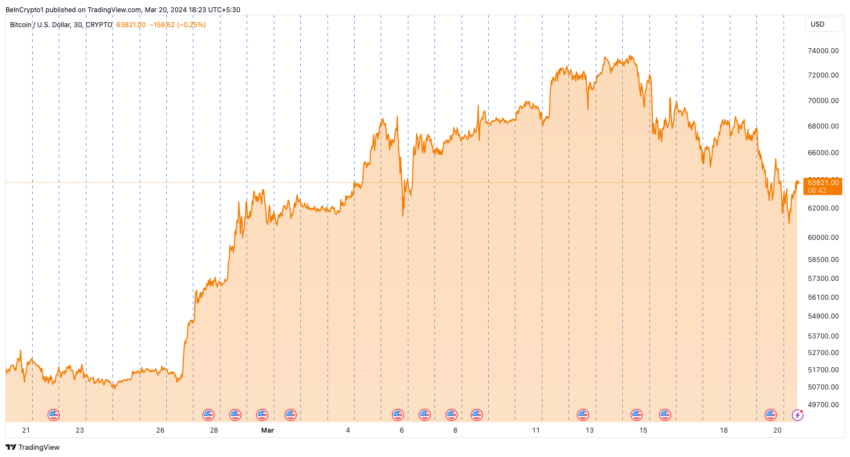ARTICLE AD BOX
Mark Yusko, a renowned hedge fund manager, has offered a rare glimpse into the sophisticated mechanisms by which exchange-traded funds (ETFs) manipulate the price of Bitcoin.
This manipulation is not a novel occurrence but a longstanding practice entrenched in Wall Street’s history and adapted to the cryptocurrency market.
How ETFs Manipulate the Price of Bitcoin
At the core of Yusko’s analysis is the strategic manipulation of Bitcoin. This practice echoes the age-old Wall Street scheme of depressing prices to buy low. Specifically, Yusko details how entities may drive down Bitcoin prices through negative sentiment or direct market action, only to accumulate more of it at the depressed value.
This method, he suggests, is not just prevalent but has been perfected over decades in traditional markets.
“Prices fall 10% overnight because there’s a bunch of manipulation in the futures market… If you want to buy a lot of something, what do you do? You sell. You tell everyone how much it sucks, you short it, you push the price down so you can buy more at a lower price,” Yusko explained.
Yusko’s narrative takes a deeper dive when discussing how Bitcoin ETFs operate. He points out a peculiar pattern where significant price movements in Bitcoin occur outside of traditional trading hours.
Read more: How To Trade a Bitcoin ETF: A Step-by-Step Approach
According to him, this anomaly can be attributed to the strategic actions of large institutional players. They manipulate the closing price of Bitcoin ETFs, subsequently affecting the asset’s overnight valuation. This manipulation ensures these entities secure profits by capitalizing on the price discrepancies created by their own actions.
“All of the gains in the Bitcoin ETFs happen overnight… None of it’s happening during the day because what’s happening right before close, the big dogs are selling naked in the futures market. They’re pushing the price down; ETFs have to buy; they can only trade the last minute of the day,” Yusko added.
 Bitcoin Price Performance with Session Breaks. Source: TradingView
Bitcoin Price Performance with Session Breaks. Source: TradingViewThis strategy leverages the futures market, where the actual possession of Bitcoin is not required to trade. Bitcoin futures contracts allow traders to speculate on its future price. Therefore, they influence its current value without the need for physical exchange.
This detachment from physical assets allows for market manipulation through speculative trading. Indeed, it distorts the true supply and demand dynamics of Bitcoin.
“If I want to sell you a Bitcoin, all I have to do is write you a contract. And as long as I go get a Bitcoin before that contract settles, we’re good,” Yusko emphasized.
Moreover, the hedge fund manager points out that this calculated effort to manipulate supply and demand dynamics comes from large institutional players. This practice ensures that institutions can secure Bitcoin at favorable prices, further influencing the market to their advantage.
Read more: Who Owns the Most Bitcoin in 2024?
In essence, Yusko’s insights reveal a complex tapestry of market manipulation. Traditional strategies are finding new life in the cryptocurrency market. By understanding these mechanisms, investors can better adapt investment strategies, armed with the knowledge that what seems like market whimsy might indeed be the oldest trick in the book.
The post Hedge Fund Manager Mark Yusko Exposes How ETFs Manipulate Bitcoin Price appeared first on BeInCrypto.
.png)
 7 months ago
2
7 months ago
2








 English (US)
English (US)